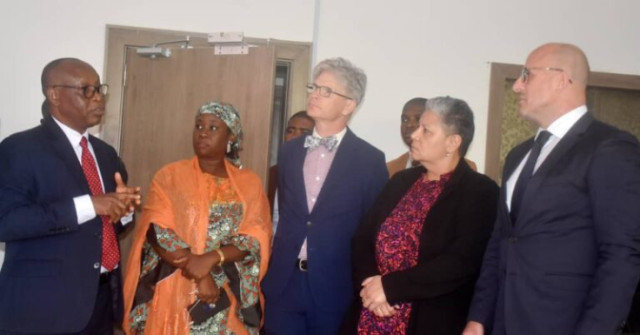The Embassy of Belgium, Australian and Canadian High Commissions in Nigeria have pledged to support the Open Data policy of the Nigeria Extractive Industries Transparency Initiative (NEITI).
The three diplomatic missions made the pledge after the inspection of the newly completed NEITI data centre during a courtesy visit to NEITI House in Abuja.
The visiting envoys were Belgium, Mr Pieter Leenknegt; Australian High Commissioner, Leilani Bin-Juda and the Canadian High Commissioner, Jammie Christoff .
According to them, the project serves a great "milestone in the use of credible data to fight corruption in the extractive industry."
They, however, pledged to support the NEITI centre with skills development, training and technical assistance.
Leenknegt, the Belgian envoy stated that with reliable data, transparency would improve in the country’s extractive sector as the public will begin to question their elected officials.
“They will ask about where the revenue is and how it is being spent and disbursed,” he argued.
Also, the Australian envoy, Bin-Juda, said the country remained focused on the importance of openness in the extractive industries which would help to build investor confidence.
Canadian high commissioner, Christoff, said it was pertinent for Nigeria to have information that are verifiable and valid.
The Executive Secretary of NEITI, Dr. Ogbonnaya Orji, in his remarks, welcomed the visit of the ambassadors to NEITI House as an opportunity to deepen cooperation and partnership between NEITI and the diplomatic community in Nigeria.
Orji said, “As supporting countries to the EITI at the global level, your visit is a great opportunity to domesticate the support of your respective countries to the EITI at global levels to connect directly with Nigerian citizens who earnestly desire that the abundant natural resources in this country work for the benefit of all not just a few.
“Our country, Nigeria, is heavily dependent on oil revenues for survival. Your visit is an opportunity to highlight the importance of partnership and cooperation between under developed, developing and developed countries which are all found within the EITI community to share knowledge, skills and technical support with our organisation.
“This will help our government and citizens with timely policy decisions and strategies to deal with these complex challenges and unavoidable unfolding developments in the extractive sector."




















